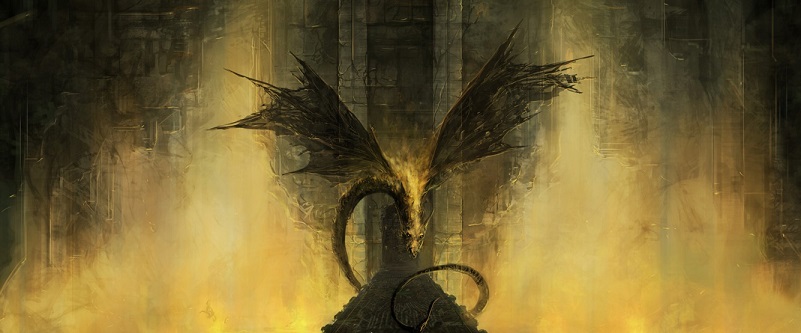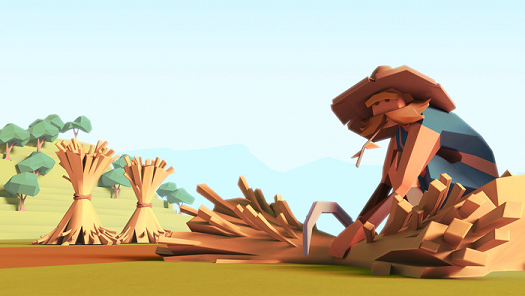 Being Famous Pre-Kickstarter: A Blessing and a Curse
Being Famous Pre-Kickstarter: A Blessing and a Curse
by Marcus Estrada
Note: Curious to see the data we’ve gathered on top funded crowdfunding projects thus far? Check out this article which includes the 50 most-funded projects complete with charts!
[divider] [dropcap]V[/dropcap]ideo game development is a challenging task. All those men and women who have created games over the years deserve praise for it. Both good and bad titles take concerted effort by one person or a whole team of individuals, after all! Of course, most of us feel a certain reverence for developers of our favorite games. Over the past few years many of these esteemed individuals have pitched new products to Kickstarter.You likely remember the onslaught that followed in the wake of Double Fine’s incredibly successful campaign headed by Tim Schafer. Dreamfall Chapters, Wasteland 2, Shadowrun Returns, Leisure Suit Larry Reloaded, and Tex Murphy – Project Fedora were just a few of the projects set to capitalize on known, loved properties. Other renowned names set off to create brand new projects such as Godus and Moebius. All in all, it has been an incredibly exciting time to be a crowdfunding fan.
In 2014 we’ve finally been able to see many of these titles come to fruition. Some were just as epic as we all anticipated, but some felt like total letdowns. How could this be, though? The main reason why campaigns by well known developers succeed so heavily is because of name recognition. Either the developer or the game series (or both) is recognizable to a large audience and they pledge in outrageous amounts because of an unspoken “promise.” The promise is that their new game will be just as fantastic as what the fan recalls playing in the past. You hardly need a marketing campaign! With such a fortunate start, all you need is a few fans to discover you’re on Kickstarter and then sit back as word spreads like wildfire.
When word of your campaign is everywhere thanks to name recognition you can expect to make mega bucks. Just look at the very top funded games that have released so far! Nearly all of the top 10 are titles from established developers and/or franchises. Their funding amounts range from $3.3 million down to $655 thousand. Thousands of crowdfunding teams would die of joy to reach funding heights anywhere near these monoliths.
Some titles mentioned above came out to tremendous applause. For example, the Shadowgate remake, Shadowrun Returns, and Tex Murphy: Tesla Effect were viewed positively by over 90% of reviewers on Steam! It looks like these teams nailed down exactly what was so lovable about their franchises and managed to recapture that essence – while still bending to some modern design contrivances. This is a lot harder than it seems, especially when developers may have left the game race in the 90s. With that said, not every big name campaign ends on such a high note.
In the realm of “failed” remakes, Jagged Alliance Flashback stands as the strangest. Despite a much-loved series and all star development team, it launched to a very tepid 41% positivity from Steam users. Leisure Suit Larry’s remake fared a bit better at 76%, but this still was a slightly unfortunate turnout. What is it about some campaigns that destines them to not meet fan expectations? My assumption is that a lot of it has to do with perception of greatness and time.
Jagged Alliance launched in 1994 and Leisure Suit Larry was even earlier in 1987. That means lovers of these titles (and others) have had over a decade to recall the love of playing them for the first time – and possibly not having gone back to them in a modern context. None of this means those games were bad, no way, they were completely great and remain so today! However, with such a span of time in between it’s probably very hard to recreate that exact magic formula from the past. The case of the Larry remake is a bit more dire in my opinion, with the consideration instead being that sort of humor feels antiquated to today’s gamers.
Then there’s the whole case of new game ideas put forth by icons of the game development scene. Some turn out as loved as Broken Age Act 1 but not everything works out that way. Some of the biggest counterexamples are Akaneiro: Demon Hunters, Godus, and Takedown: Red Sabre. Their Steam player positivities are 48%, 40%, and 38% respectively. Now these scores might be expected from games by new teams who are creating their first game but how on Earth could esteemed industry veterans create an average at best product?
It seems there was definitely a perception of these people being unable to do wrong by game fans. But, according to consumer sentiment, they did do wrong – and to a great degree. This should help prove the fact that even an established name might flounder from time to time. We see it from artists of all kinds – authors, directors, and musicians sometimes have that one stinker of a project. Yet, they are able to try again and reaffirm why their style of art have developed a following. In the gaming scene it feels like failure is far more of a death sentence. Of course, can one really say games such as Akaneiro and Godus failed? They’re not even out of Early Access yet!
Perhaps that’s actually part of the problem. We as video game players have played previous titles from the likes of American McGee and Peter Molyneux. We know they’re capable of creating complex, polished products. Although gamers increasingly demand beta and “alpha” access into games it causes a real conundrum. We want access as early as humanly possible – but we also want finished products. Developers may make more money releasing into Early Access initially, but it’s likely because of this that many formulate their opinions during the (long) beta period and downvote the game into oblivion.
Of course, it could also be the fact that these games simply aren’t that fun at all. Having not yet played any three of the titles it’s hard to offer my own opinion on the matter. In any case, gamers have definitely spoken and are not pleased with offerings such as these. Does it mean developers should never create beyond established titles? No, of course not! However, some of the audience may not actually want something new and instead yearn for the same classics as yesteryear. Well known developers looking to crowdfund entirely new products will likely have to deal with this problem for years to come.
Gaming fans are a tough crowd to please. Not only do we create mental (or tangible) shrines to our favorite video games of all time, we are usually willing to share our opinions on new titles. Because of this, it’s also hard to “pull one over” on this massive community. Thanks to some high profile campaigns turning out mediocre campaigns we will likely never again see such wild funding successes in the near future. But if, and when, they do just make sure you fund a project for what it is – not simply because of the people behind it.
[author image=”http://cliqist.com/wp-content/uploads/2014/01/marcus.jpg” ] Marcus is a fellow with a love for video games, horror, and Japanese food. When he’s not writing about games for a multitude of sites, he’s usually still playing one. One day when he became fed up with the way sites would ignore niche titles he decided to start his own site by the name of Pixel Pacas. Writing about video games is something he hopes to continue doing for many years to come. Some of Marcus’s favorite games include Silent Hill 2, Killer7, and The Sims. [/author]






